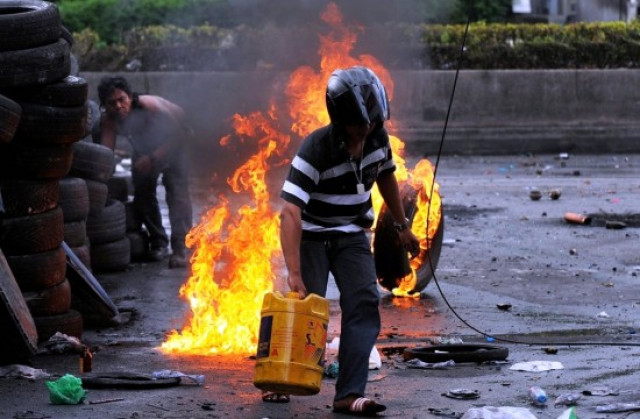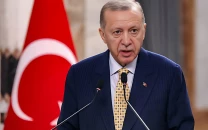Thai troops violate law in Bangkok action: Amnesty
Amnesty International on Tuesday accused Thailand's army of "reckless use of lethal force".

The London-based rights group said Thai troops were violating the law by firing live ammunition in several areas around Bangkok during five days of violence triggered by attempts to seal the "Red Shirts" protest zone.
"Eyewitness accounts and video recordings show clearly that the military is firing live rounds at unarmed people who pose no threat whatsoever to the soldiers or to others," said Amnesty's Thailand specialist Benjamin Zawacki. "This is a gross violation of a key human right -- the right to life," he said in a statement.
The government has said it is also battling hundreds of "terrorists" hiding among demonstrators who it says are responsible for targeting civilians. However, Amnesty accused army snipers of killing two medics wearing white medical uniforms as well as a 17-year-old boy.
New York-based Human Rights Watch this week criticised the designation of "live fire zones" by Thai authorities battling anti-government protesters, saying it put them on a "slippery slope" towards serious rights abuses. The military Saturday declared one area of Bangkok a live fire zone as troops struggled to gain control in street battles.
The two-month crisis has now left 67 people dead and about 1,700 wounded. Twenty-five people died in a failed army crackdown on April 10.
Thailand's government on Tuesday announced three more public holidays for government agencies in Bangkok, in a move to keep civilians off the violence-wracked streets until the end of the week. Government offices were already shuttered for Monday and Tuesday, and schools have been ordered to delay their return from holidays for a week until next Monday.
The capital's two main train systems, the underground and the overhead monorail, have been closed for four days due to the clashes between troops and anti-government protesters that have left 38 dead and hundreds injured. "The cabinet considers the holidays are crucial... for public safety," a government spokesman Vachara Kanikar said, announcing that Wednesday through to Friday would be public holidays for civil servants.
"The protests are restricted but government officials have to travel to their workplace and that is difficult when some roads are blocked." Vachara said private companies should make their own decisions on whether to keep their staff at home.


1725099588-0/BeFunky-(41)1725099588-0-208x130.webp)
















COMMENTS
Comments are moderated and generally will be posted if they are on-topic and not abusive.
For more information, please see our Comments FAQ